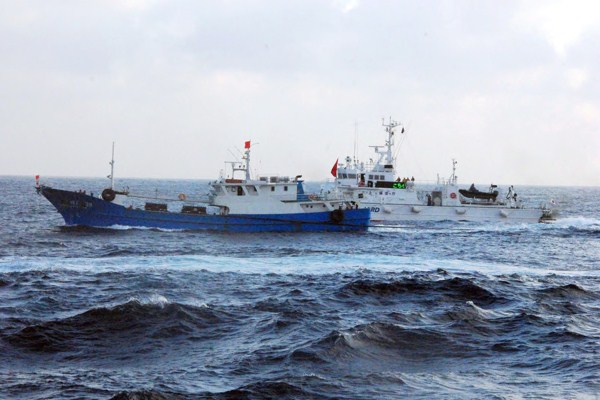The Vikings conquered the high seas to plunder and pillage. The British established their empire by dominating the oceans. And in the past 40 years, the United States Navy helped usher in a new era of unprecedented trade and global connectivity by safeguarding major sea routes. The world’s oceans have always represented an important strategic theater. But the threats today go beyond the headline-grabbing developments, like China’s advanced naval capabilities and Russia’s growing submarine activities in the Baltic Sea. A quieter maritime challenge is building up out of sight: control over the world’s fisheries.
With over 90 percent of global fisheries either fully collapsed or depleted and the demand for fish expected to continue rising, intense competition over fishing rights and access is highly likely, if not inevitable. After all, nations have a long history of clashing over consumable commodities, and for many countries fishing catches represent a major source of food and livelihoods.
If tensions over access to fish are already growing today, it is in large part due to the recent behavior of one country: China. The world’s largest fish producer since 1990, China now finds itself facing a fish supply crisis. Thirty percent of Chinese fisheries have collapsed, and another 20 percent are overexploited. China’s fish consumption, meanwhile, grew at an annual rate of 6 percent between 1999 and 2010, during which time the country also added over 80 million people—the equivalent of Germany’s entire population.

